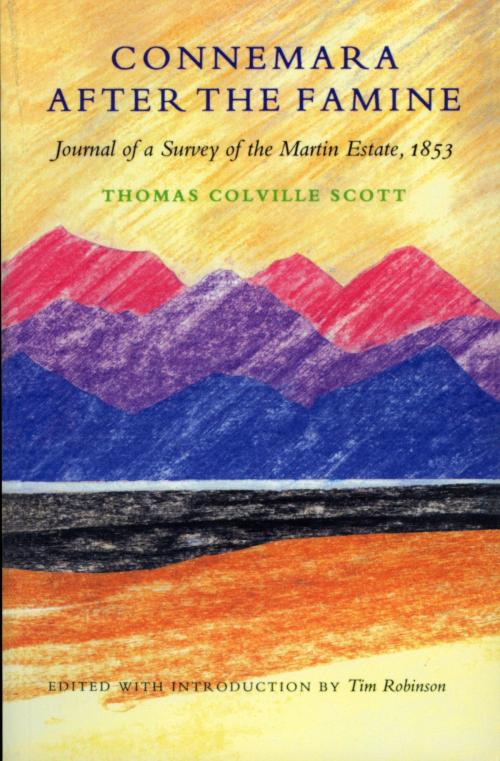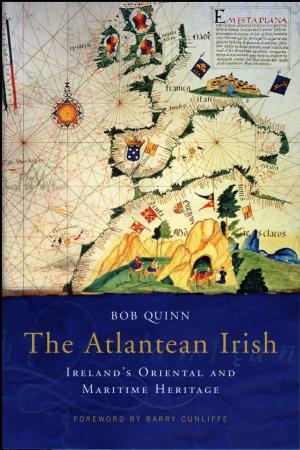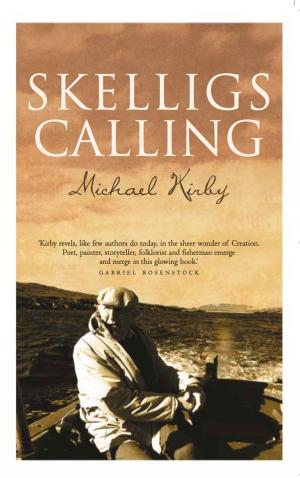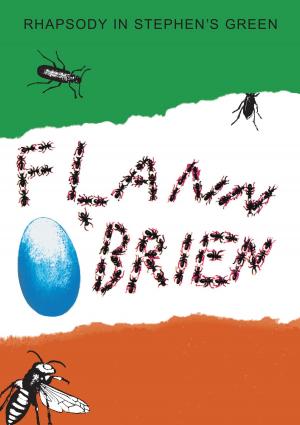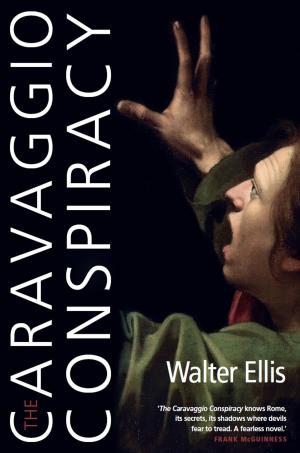| Author: | Tim Robinson | ISBN: | 9781843512837 |
| Publisher: | The Lilliput Press | Publication: | February 15, 2012 |
| Imprint: | The Lilliput Press | Language: | English |
| Author: | Tim Robinson |
| ISBN: | 9781843512837 |
| Publisher: | The Lilliput Press |
| Publication: | February 15, 2012 |
| Imprint: | The Lilliput Press |
| Language: | English |
In the aftermath of the Great Famine of 1845-52, the Martin Estate in the West of Ireland, 200,000-acres of bog and mountain, was put up for sale. Its mortgagees, the London Law Life Insurance Society, evicted many of the tenants, and in February 1853 sent Thomas Colville Scott to conduct a survey of their property. This is his journal, recently discovered at an auction-house in England. Colville Scott records many an extraordinary encounter with individual survivors of the famine, some traumatized into idiocy, others mysteriously bettering themselves on well-nigh invisible means. The descriptions of squalid hostelries, rent-evading tenants, thieving beggars and the works of 'Papistry' are those of a cocksure Scots metropolitan - and his account of a meeting of the Clifden Workhouse Guardians is as brutally comic as Thackeray - but his dealings with human flotsam such as the tiny chimneysweep running naked through the snow shows a warm-heartedness that makes this journal as moving as it is richly informative. Drawings by the author and sketches from contemporary guidebooks illustrate the text. Tim Robinson's introductory essay locates Colville Scott's responses within the frame of Connemara history and the nineteenth century. His annotations and map detailing the Martin Estate enable the reader to follow, day by day, the young surveyor on his exploration of 'this inhabited desolation, Connemara after the Famine'.
In the aftermath of the Great Famine of 1845-52, the Martin Estate in the West of Ireland, 200,000-acres of bog and mountain, was put up for sale. Its mortgagees, the London Law Life Insurance Society, evicted many of the tenants, and in February 1853 sent Thomas Colville Scott to conduct a survey of their property. This is his journal, recently discovered at an auction-house in England. Colville Scott records many an extraordinary encounter with individual survivors of the famine, some traumatized into idiocy, others mysteriously bettering themselves on well-nigh invisible means. The descriptions of squalid hostelries, rent-evading tenants, thieving beggars and the works of 'Papistry' are those of a cocksure Scots metropolitan - and his account of a meeting of the Clifden Workhouse Guardians is as brutally comic as Thackeray - but his dealings with human flotsam such as the tiny chimneysweep running naked through the snow shows a warm-heartedness that makes this journal as moving as it is richly informative. Drawings by the author and sketches from contemporary guidebooks illustrate the text. Tim Robinson's introductory essay locates Colville Scott's responses within the frame of Connemara history and the nineteenth century. His annotations and map detailing the Martin Estate enable the reader to follow, day by day, the young surveyor on his exploration of 'this inhabited desolation, Connemara after the Famine'.
